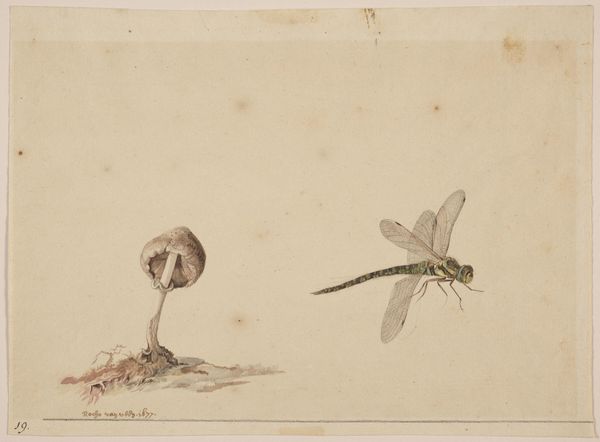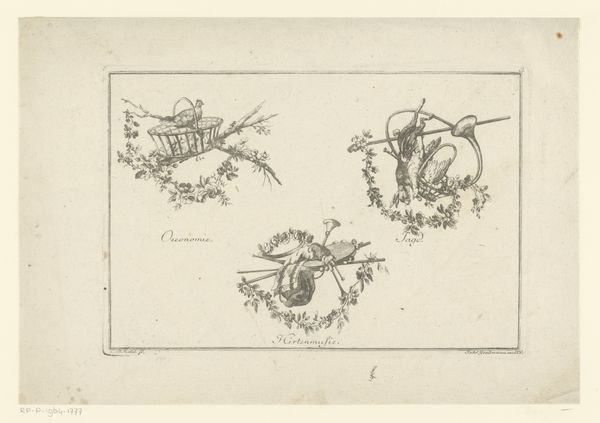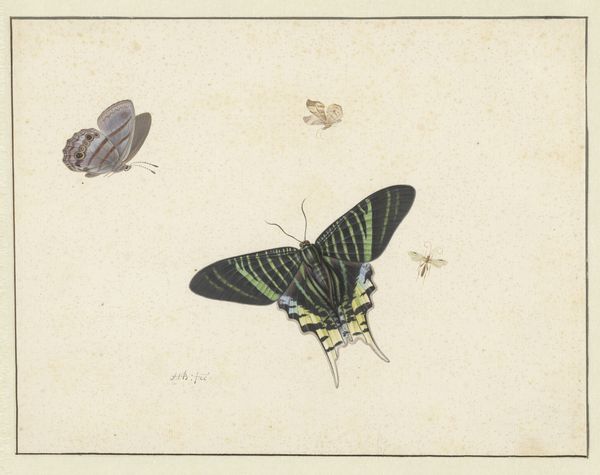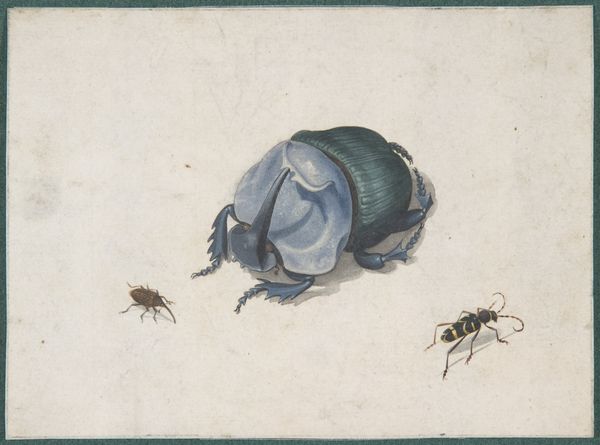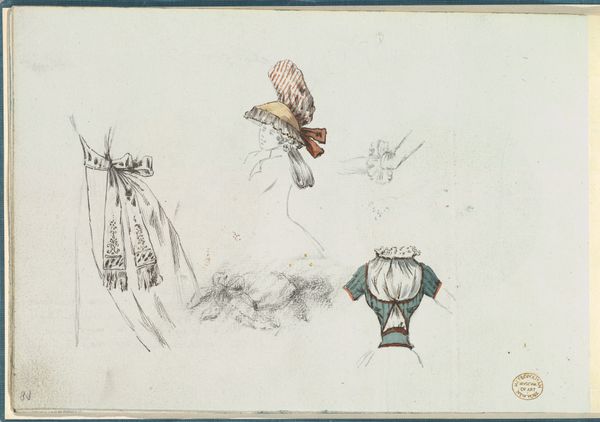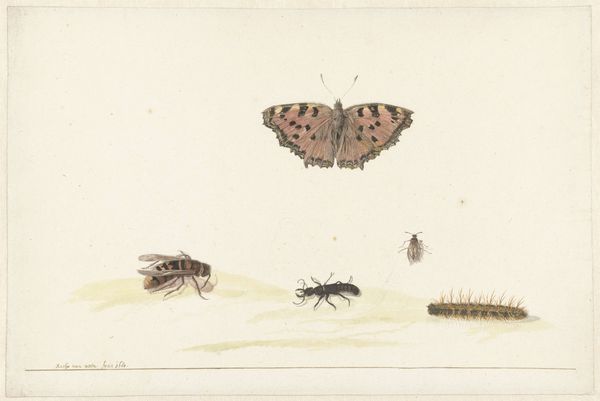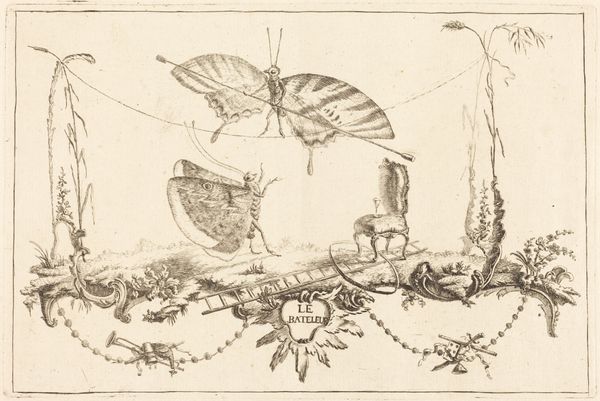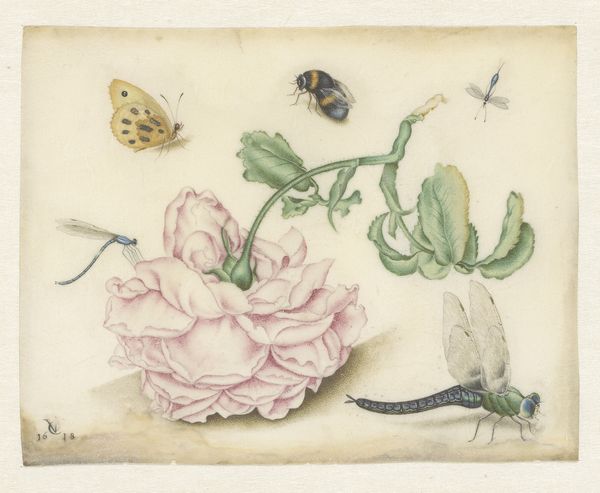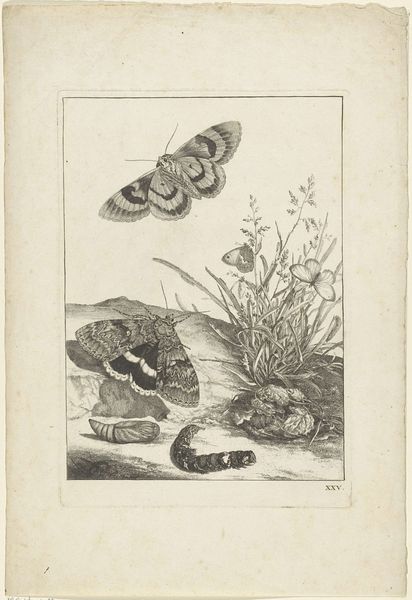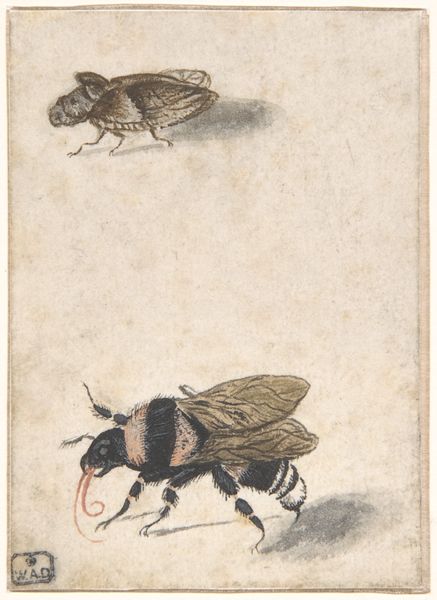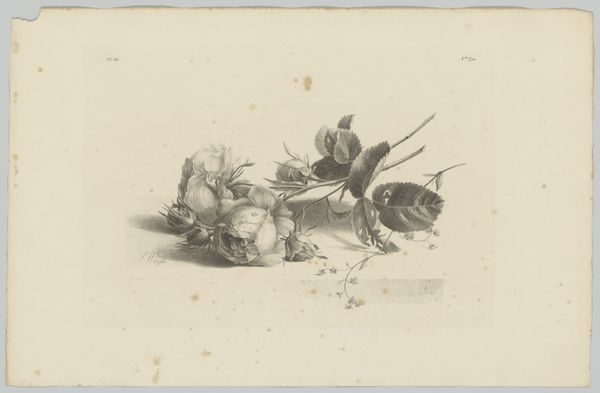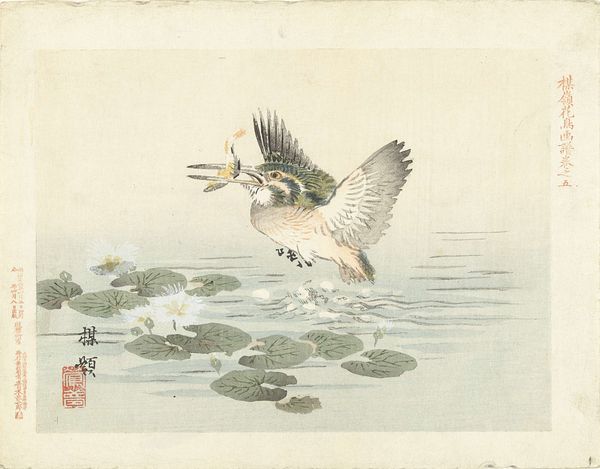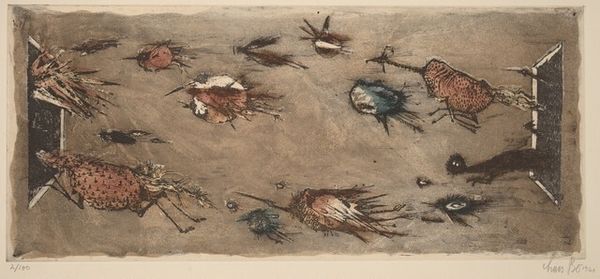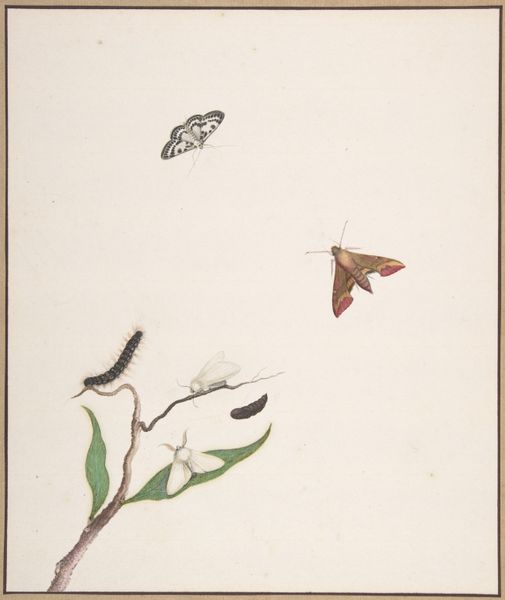
drawing, coloured-pencil, print, watercolor
#
drawing
#
coloured-pencil
#
water colours
# print
#
watercolor
#
coloured pencil
#
watercolour illustration
#
academic-art
#
miniature
Dimensions: sheet: 7 15/16 x 11 3/4 in. (20.1 x 29.9 cm)
Copyright: Public Domain
Curator: Rochus van Veen’s "Various Insects by a Fungus" from 1681 presents a detailed exploration of the insect world, utilizing drawing, colored pencil, watercolor, and print techniques. It's currently housed at the Metropolitan Museum of Art. Editor: Immediately, I'm struck by how delicate yet scientific this composition is. There is such incredible precision and focus; however, its muted tones grant it a somewhat melancholy feel. Curator: Indeed. Van Veen’s work aligns with the academic art style, but with its focus on a very specific element of nature, the final product borders more along illustration. Examining this, I start wondering how he sources his materials. The production quality gives the effect of very specific printing and paper manufacturing techniques. Editor: I see it somewhat differently. I immediately consider the history of scientific classification and how that intersects with colonial exploitation of natural resources and forced labor practices of Indigenous people around the world to meet global demands. This image isn't just insects; it’s an assertion of European power. Curator: That’s interesting. So, the labor of creating knowledge itself. It begs the question: how accessible were the resources required to manufacture colored pencils and watercolors during that period? We can study global economic trends that impacted access to artistic materials. Editor: Absolutely. And who had the leisure time and patronage to create such detailed studies? This artwork speaks volumes about class and privilege in the 17th century. Not only were these art pieces created, but how many other works like this served political agendas through a lens of scientific advancement that simultaneously further entrenched Western dominance? Curator: Both elements intertwine inseparably, don’t they? The means of artistic creation, influenced by the times while acting as agents for wider socioeconomic patterns in that same period. Editor: Agreed. By recognizing art within broader historical and power structures, the context for both its making and reception take on new significance. Curator: Precisely. A deeper dive encourages me to question everything. What conditions made such a creation possible, and what was their intended purpose? Editor: It makes you think about art's place as not separate from politics, but one expression of power dynamics during a specific moment in history.
Comments
No comments
Be the first to comment and join the conversation on the ultimate creative platform.
